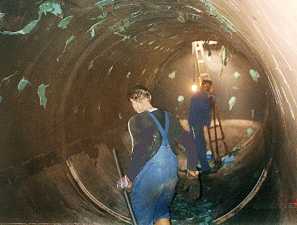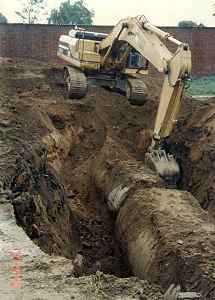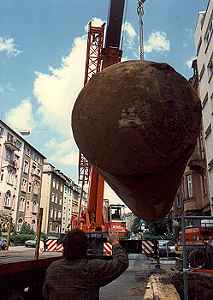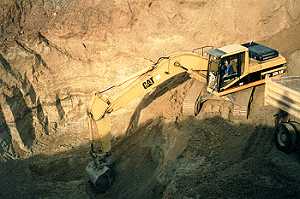Remediation of soil, soil air and groundwater
When public is endangered by contaminations, remediation of the soil, soil gas or groundwater will be necessary. This has to be assessed for the individual case on the base of threshold values applying for the different harmful substances, respectively.
Liability for soil remediation may arise from having caused the contamination or part of it (production) or from owning or having owned the property.
With the German Federal Soil Protection Act (BBodSchG) and German Federal Soil Protection Ordinance (BBodSchV) in 1998 a nationwide base for the assessment of soil contaminations has been established for the first time.
The ordinance includes threshold values demanding investigation or sanitation for various substances such as PAH, TPH, CHC, AHC, heavy metals and others.
A formerly overfilled underground storage tank is
being cleaned



